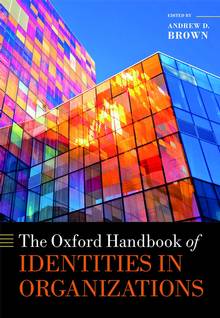The Oxford Handbook of Identities in Organizations
D. Brown, Andrew
Éditeur : OXFORD UNIVERSITY PRESS
ISBN papier: 9780198827115
Parution : 2020
Code produit : 1399855
Catégorisation :
Livres /
Gestion /
Gestion des ressources humaines /
Psychologie organisationnelle
Formats disponibles
| Format | Qté. disp. | Prix* | Commander |
|---|---|---|---|
| Livre papier | En rupture de stock** |
Prix membre : 172,43 $ Prix non-membre : 181,50 $ |
*Les prix sont en dollars canadien. Taxes et frais de livraison en sus.
**Ce produits est en rupture de stock mais sera expédié dès qu'ils sera disponible.
Description
Conceived as the meanings that individuals attach to their selves, a substantial stockpile of theory related to identities accumulated across the arts, social sciences, and humanities over many decades continues to nourish contemporary research on self-identities in organizations. In times which are more reflexive, narcissistic, and fluid, the identities of participants in organizations are increasingly less fixed and less certain, making identity issues both more salient and more interesting. Particular attention has been given to processes of identity construction, often styled 'identity work'. Research has focused on how, why, and when such processes occur, and their implications for organizing and individual, group, and organizational outcomes. This has resulted in a burgeoning stream of research from discursive, dramaturgical, symbolic, socio-cognitive, and psychodynamic perspectives that most often casts individuals' efforts to fabricate identities as intentional, relational, and consequential. Seemingly intractable debates centred on the nature of identities - their relative stability or fluidity, whether they are best regarded as coherent or fractured, positive (or not), and how they are fabricated within relations of power - combined with other conceptual issues continue to invigorate the field. However, these debates have also led to some scepticism regarding the future potential of identities research. Yet as the chapters in this Handbook demonstrate, there are considerable grounds for optimism that identity, as root metaphor, nexus concept, and means to bridge levels of analysis has significant potential to generate multiple compelling streams of theorizing in organization and management studies.























